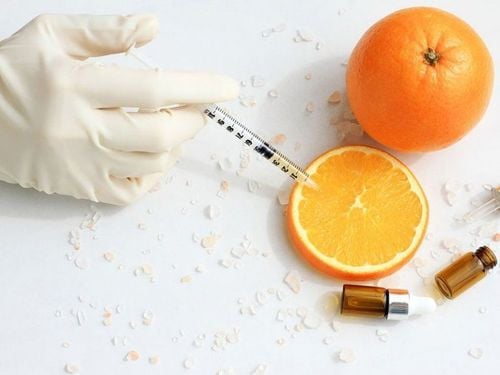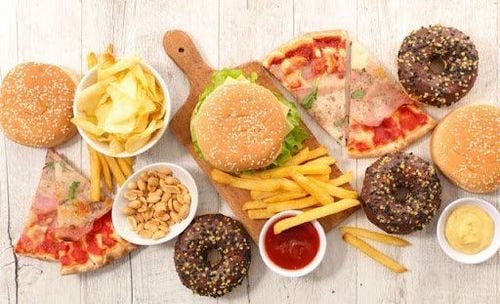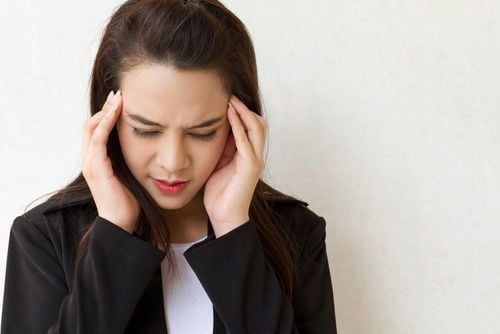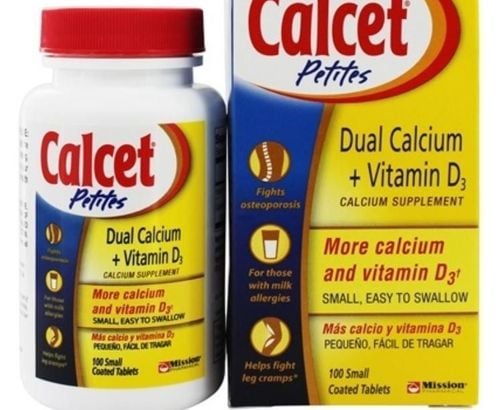This is an automatically translated article.
When you reach the age of 30, the body almost reaches the maximum bone mass, if not creating enough bone mass during this time or the process of bone loss later, bone health will face many problems, the most common are: fracture. Fortunately, a variety of nutrition and lifestyle habits can help you build strong bones and maintain bone health into old age. Here are 10 natural ways to take care of your joint health.
1. Take care of bone health by eating lots of vegetables
Don't be surprised when the doctor advises you to eat more vegetables. Because of the abundant vitamin C content in vegetables, it helps stimulate the production of bone-forming cells. Additionally, some studies suggest that vitamin C's antioxidant effects may protect bone cells from damage.
Vegetables also increase bone density, a measure of the amount of calcium and other minerals found in bones. Osteoporosis is a common condition characterized by low bone density.
Eating a variety of green and yellow vegetables is associated with enhanced bone mineralization in childhood and maintenance of bone mass in young adults. Eating more vegetables has also been shown to benefit older women. One study in women over the age of 50 found that those who ate onions regularly had a 20% lower risk of osteoporosis than women who rarely ate onions.
A major risk factor for osteoporosis in the elderly is increased bone turnover or increased bone breakdown and decreased new bone cell formation.
In summary, a diet rich in vegetables has been shown to help build healthy bones throughout childhood and maintain bone mass in young adults as well as older women.
2. Do strength training and weight-bearing exercises
Engaging in specific types of exercise can help you build and maintain bone health. One of the best types of activity for joint health is weight-bearing exercises that promote new bone formation.
Studies in children, including those with type 1 diabetes, have found that this type of activity increases the amount of bone produced during the years of peak bone growth.
Also, it can be extremely beneficial for preventing bone loss in older adults. Studies in older men and women performing weight-bearing exercise have shown an increase in bone mineral density, bone strength, and bone size, as well as a decrease in markers of degeneration ossification.
Additionally, resistance training exercises are not only beneficial for muscle gain, but also help protect against bone loss in women, including those with osteoporosis.

Tham gia vào các loại bài tập cụ thể có thể giúp bạn chăm sóc sức khỏe xương khớp
3. Provide enough protein in taking care of bone and joint health
Adequate protein intake is important in bone health care. In fact, about 50% of bones are made of protein.
Researchers have reported that low protein intake reduces calcium absorption and may also affect the rate at which bone is formed and broken down. However, there is also concern that a high-protein diet will deplete calcium due to increased acidity in the blood. However, studies have found that this does not happen in people who consume up to 100 grams of protein per day.
In fact, research shows that older women have better bone density when they consume higher amounts of protein. In a 6-year observational study of 144,000 postmenopausal women, higher protein intake was associated with a lower risk of forearm fractures and higher bone density in the hips, spine, and overall body. significantly more.
Furthermore, a diet containing a greater proportion of calories from protein may help maintain bone mass during weight loss. In one year-long study, women who provided about 86 grams of protein per day on a calorie-restricted diet lost less bone mass from the arms, spine, hips, and legs than women who did not. Women consume 60 grams of protein per day.
In summary, low protein intake can lead to bone loss, while high protein intake may help protect bone health during aging and weight loss.
4. Eat calcium-rich foods
Calcium is the most important mineral for bone health. Because old bone cells are constantly being destroyed and replaced by new cells, the body needs an adequate supply of calcium daily to preserve bone structure and strength.
Calcium needs are 1,000 mg per day for most people, although teens need 1,300 mg and older women need 1,200 mg. However, the amount of calcium your body actually absorbs can vary between groups of subjects.
Interestingly, if you eat a meal containing more than 500 mg of calcium, your body will absorb much less than if you provided calcium in lower concentrations. Therefore, it is best to evenly distribute calcium throughout the day by adding different calcium-rich foods to each meal.
A recent 10-year study of 1,567 people found that although high calcium intake from food reduced the overall risk of heart disease, those who took calcium supplements in the form of a pill had a 22 higher risk of heart disease. %.

Bổ sung Canxi đầy đủ là điều cần thiết trong việc chăm sóc sức khỏe xương khớp
5. More vitamin D and vitamin K
Vitamin D and vitamin K are extremely important for building strong bones.
Vitamin D plays a number of roles in bone health, including helping the body absorb calcium. The body needs to have at least 30 ng/ml (75 nmol/l) in blood according to recommendations to protect against osteoporosis and other bone diseases. Studies have shown that children and adults with low vitamin D levels tend to have lower bone density and a greater risk of bone loss than those with adequate levels of vitamin D. Unfortunately, deficiency Vitamin D is very common, affecting about one billion people worldwide. The body can get enough vitamin D through sun exposure and supplementation with other food sources such as fatty fish, liver, and cheese. However, many people need up to 2,000 IU of vitamin D daily to maintain optimal levels.
Vitamin K2 supports bone health by regulating osteocalcin, a protein involved in bone formation. This change allows osteocalcin to bind to minerals in the bone and helps prevent calcium loss from the bone. The two most common forms of vitamin K2 are MK-4 and MK-7. MK-4 exists in small amounts in liver, eggs and meat. Fermented foods such as cheese, sauerkraut and a soy product are high in MK-7. In a study of women aged 50–65 years, those taking MK-4 maintained good bone density, while the group given a placebo showed a significant decrease in bone density after 12 months.
6. Avoid very low calorie diets
Reducing calories too low is not a good idea. In addition to slowing metabolism, creating a feeling of hunger and loss of muscle mass, it can also be harmful to bone health.
Studies have shown that diets that provide less than 1,000 calories per day can lead to lower bone density in people of normal weight, overweight or obesity.
In one study, obese women who consumed 925 calories per day for 4 months experienced a significant loss of bone density from their hips and upper thighs, regardless of whether they did the exercises or not.
To build and maintain strong bones, follow a balanced diet that provides at least 1,200 calories per day from diverse food groups such as protein, foods rich in vitamins and minerals that help protect health. bone and joint health effectively and safely.
7. Consider taking a collagen supplement
Although there hasn't been much research on this topic, early evidence suggests that collagen supplements may help protect bone health. Collagen is the main protein found in bones. It contains the amino acids glycine, proline and lysine, which help build bones, muscles, ligaments as well as other tissues.
Although most studies have looked at collagen's effects on joint conditions like arthritis, it also seems to have beneficial effects on bone health. A 24-week study found that postmenopausal women with osteoporosis combined collagen and the hormone calcitonin leading to a significant reduction in markers of collagen breakdown.
8. Maintain a stable, healthy weight
In addition to eating well, maintaining a healthy weight can help support bone health (for example, being underweight increases the risk of osteoporosis). This is common in postmenopausal women, who have lost their ability to protect their bones due to a drop in the sex hormone estrogen. In fact, low body weight is also a major contributor to reduced bone density and bone loss in this age group.
On the other hand, some studies show that obesity can decrease bone quality and increase the risk of fractures due to the weight of excess body weight. Although weight loss often leads to bone loss, it is often less pronounced in obese people than in normal-weight individuals.
Therefore, maintaining a healthy weight is the way to go when it comes to preserving one's joint health. Being too thin or too fat can negatively affect bone health.

Duy trì cân nặng hợp lý có thể hỗ trợ chăm sóc sức khỏe xương khớp
9. Add foods rich in magnesium and zinc
Calcium is not the only mineral important for bone health. Several other minerals also play an additional role, including magnesium and zinc.
Magnesium plays an important role in converting vitamin D to its active form to promote calcium absorption. An observational study of 73,000 women found that those who supplemented with 400 mg of magnesium per day had 2-3% higher bone density than women who supplemented with 200 mg per day.
Zinc is an essential trace mineral, meaning the body needs zinc in very small amounts. Zinc helps to make up the mineral part of the bones. In addition, zinc promotes the formation of bone-forming cells and prevents excessive bone breakdown. Studies have shown that zinc supplements help support bone growth in children and maintain bone density in older adults. Good sources of zinc include beef, shrimp, spinach, flaxseeds, oysters, and pumpkin seeds.
10. Add foods rich in Omega-3 fats
Omega-3 fatty acids are well known for their anti-inflammatory effects. They have also been shown to help protect against bone loss during aging. In addition to getting enough omega-3 fats in your diet, it's also important to ensure a balance between omega-6 and omega-3 fats. In general, it's best to aim for an omega-6 to omega-3 ratio of 4:1 or lower.
Plant sources of omega-3 fats include chia seeds, flaxseeds and walnuts.
Bone health is a very important part of all life stages. However, taking care of your bone health is something people often overlook and ignore, as symptoms often don't appear until bone loss is advanced. Following a healthy diet and lifestyle can help build and maintain strong bones.
Please dial HOTLINE for more information or register for an appointment HERE. Download MyVinmec app to make appointments faster and to manage your bookings easily.













